Consensus Never Built the Future
By Jon Callaghan, October 2, 2025

Here we are amidst one of the greatest innovation waves of a lifetime, yet the venture capital industry is operating with a feverish conformity at both ends of the market: seed and growth.
Today’s thinking goes something like this: there is one right way to build a startup, one “right type of team” to do it, and one right way to fund it. At the seed stage, this is best seen in the standardized auction environment of some of the top accelerators, or “startup factories.” At Series A and beyond, it’s visible in the prevalence of consensus capital mega rounds. (There’s a great summary of market dynamics here and here). This thinking misunderstands what’s made venture return so powerful for investors historically. It’s a shorthand for GPs and LPs who prefer to ride momentum rather than to do the brave, long-term, contrarian work that has created virtually all of venture capital’s power-law winners.
When I look at both ends of today’s venture capital market, I see conformity. And I can tell you with certainty that conformity and consensus do not yield breakout venture capital returns; history proves the opposite. These patterns are not new—this is what venture felt like in 1999, and we all just lived through the “consensus” growth period of the ZIRP years (2020 to 2022). I don’t think you need me to remind you how much the 1999 vintage returned for GPs and LPs (nothing), and my professional view is that the ZIRP vintages will not return well either. Both periods were characterized by consensus, overfunding, overvaluing, and a deep misunderstanding of duration. Fear-based conformity fails in venture.
Take today’s thinking around teams, or “consensus founders.” The prevalent thinking is that only “one type” of Founder can build a power-law breakout company in today’s market, and they are the ones commanding mega-rounds and auctions. I’ve had LPs share this belief with me—that there really is just one archetype for an AI Founder. While AI certainly requires a bold vision and incredibly diverse technical skill, it’s wildly incorrect to think that only one type of Founder will build value in this massive industrial revolution. It’s also historically inaccurate to believe that today’s consensus of the “right” Founder will create a breakout in the future.
Rewind the clock a bit and ask anyone who was there at the time: Larry and Sergey were definitely not cut from the then-accepted consensus of what a startup Founder should look like. The idea for yet another search engine by non-traditional Founders? Big outlier. Mark Zuckerberg was an outlier. Ev Williams was an outlier. Jeff Bezos was an outlier. Alex Karp, a lawyer and philosophy Ph.D funded when technical Founders ruled the valley, was definitely an outlier. Consensus Founders didn’t build these massive winners: contrarian Founders did. To think that this wave is somehow different and today’s consensus will rule? Yikes.
Contrarian capital bets early on bold, hazy ideas envisioned by remarkable talent. It sees duration as a feature, an advantage—not a bug. Big things take time to build; innovation is arduous and is often very slow before it becomes lightning fast. Optimizing for a short duration in a seed or Series A round? Good luck. The biggest companies of our day—OpenAI, Anthropic, Palantir—were founded years ago. Their remarkable success didn’t happen overnight.
A recent announcement provides a perfect example of the two types of investing: the bold team at Periodic Labs announced a $300 million seed round. First, I congratulate the Founders—we need more capital invested in scientific discovery, and I’m thrilled for any new company formation, both for the Founders and for the world. Capitalism is a powerful force for good. Second, I’ll say welcome to the party. Many of us practicing contrarian capital have been funding Founders at the intersection of AI and science for years. Two massive successes from True’s portfolio are Enveda and Basecamp Research, funded in 2020 and 2021, respectively. These were contrarian bets on brilliant talent pursuing a wild and crazy future market idea, with zero consensus at the time of initial investment.

